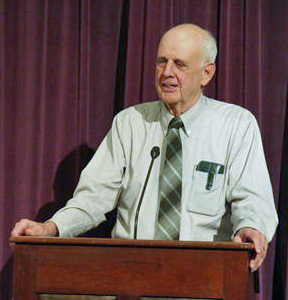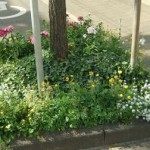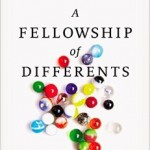 In this month’s issue of The Progressive magazine, there is a wonderful article by Wendell Berry, entitled “The Commerce of Violence” (which can be read online here…), which begins:
In this month’s issue of The Progressive magazine, there is a wonderful article by Wendell Berry, entitled “The Commerce of Violence” (which can be read online here…), which begins:
On the day of the bombing in Boston, The New York Times printed an op-ed piece by a human being who has been imprisoned at Guantánamo for more than eleven years, uncharged and, of course, untried. The occurrence of these two events on the same day was a coincidence, but that does not mean that they are unrelated.
What connects them is our devaluation, and when convenient our disvaluation, of human life as well as the earthly life of which human life is a dependent part. This cheapening of life, and the violence that inevitably accompanies it, is surely the dominant theme of our time. The ease and quickness with which we resort to violence would be astounding if it were not conventional.
Later in the article, he reminds us:
We forget also that violence is so securely founded among us—in war, in forms of land use, in various methods of economic “growth” and “development”—because it is immensely profitable. People do not become wealthy by treating one another or the world kindly and with respect. Do we not need to remember this? Do we have a single eminent leader who would dare to remind us?
And he closes the article with the thoughts:
Actually to help our suffering of one man-made horror after another, we would have to revise radically our understanding of economic life, of community life, of work, and of pleasure. We employ thousands of scientists and spend billions of dollars to reduce matter to its smallest particles and to search for farther stars. How many scientists and how many dollars are devoted to harmony between economy and ecology, or to amity and lenity in the face of conflict?
I was especially struck by these final words of Berry and particularly, the call to harmonize ecology and economy. We’re not scientists, and we certainly don’t have billions of dollars to spend, BUT what John and I are proposing in the Slow Church book is a vision of drawing together ecology and economy that begins in local church communities. As we come to recognize the superabundant economy of creation, and live with gratitude — and not entitlement — within that economy, we begin to live more attentively to the ecology of creation. This is not a grand, unified approach, but surely Mr. Berry can appreciate a grassroots approach that begins in our local neighborhoods, right? Also essential to Slow Church is recovering the practice of conversation (even perhaps dinner-table conversation) in our churches. In conversation that is rooted in the economy of creation, in which every person (and every thing) is a gift of God, we begin to unlearn our cultural habits of devaluation and demonization of others.
I am hopeful about this approach because I am a part of a church community that has, for 20 years, been learning to talk together. As I have described in my book The Virtue of Dialogue, we began with a practice of gathering for weekly conversation on Sunday nights. This conversation was extraordinarily volatile at first, with people yelling at each other, and some folks leaving the conversation or the church altogether. But as we have continued over the years, we are gradually learning to be together and to value each other as gifts. But the crazy thing is that our conversations as a church are not confined within the walls of the church building or the social bounds of our congregation. We are learning to value and talk with our neighbors, and as a result of neighborhood conversation, things are starting to change: a food co-op launches in a neighborhood with no grocery stores, community gardens are popping up and thriving, houses formerly abandoned are being transformed into good, affordable housing. We certainly have a long way to go in bringing together our ecology and our economy, BUT as Wendell Berry has surmised, as we have spaces like our faith communities, where creating space for conversation and learning to be together, slowly and gradually will transform our minds from devaluation and exploitation of others and the world to appreciation and gratitude.
Change is possible, and as we have seen on a very small scale in our neighborhood, as we re-learn the grassroots arts of conversation, we start to see broader institutional shifts popping up that are moving in the direction of uniting ecology and economy.












